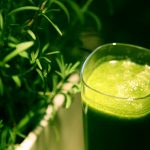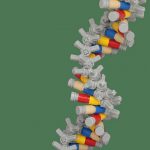Lifestyle

There are many reasons why spending time outdoors and enjoying nature is beneficial. Many of these have been measured by scientists, but one of the best reasons to walk in a park or take a forest hike may be unmeasurable. It’s About the Body Civilization, the world humans have created for themselves, is largely designed …
Read More

Life is full of mirrors. A reflective mirror shows us our body. From social mirrors, or the minds of others, we receive positive or negative feedback. In our personal and professional activities, we can view our behaviors. Of all the mirrors available to us, only one allows us to see our true or essential self. …
Read More

In the 13th century, a fruit belonging to the gourd family called Luo Han Guo was said to be grown and eaten by monks in a mountainous area of Southern China. Now, eight hundred years later, Luo Han Guo, commonly called monk fruit, has been developed into a natural sweetener that might be of interest …
Read More

Just because a smoothie contains leafy greens does not mean it is good for you. Many smoothies, particularly those commercially made, contain as much or more sugar than a can of regular soda. To enjoy the taste and energy benefits of smoothies without sending your blood sugar into the stratosphere, make them at home, and …
Read More

Belly, or visceral fat, refers to fat cells that get packed around and between our abdominal organs, adding inches to the waistline. Safely getting rid of the belly fat is more doable than many people realize. Inches around our middle will come off when we participate in regular aerobic exercise and consume a high fiber, …
Read More

Entering treatment for an eating disorder, patients and their friends and family all have expectations about how recovery will go. Fortunately, healing occurs despite our often unrealistic expectations. Expectations that will not disappoint must encompass patient individuality and the often bumpy, crooked, twisted, slow and sideways path of healing. Five Realistic Expectations It is realistic …
Read More

The tendency to act impulsively when feeling depressed or distressed is often called a “negative urgency.” Depressed individuals with a low degree of negative urgency tend to withdraw and become inactive when symptoms are intense. Depressed individuals with a high degree of negative urgency tend to act impulsively instead. They might drink heavily or eat …
Read More

Although they add no carbohydrate or calories to our food, research indicates that artificial sweeteners may contribute to weight gain. These findings are refuted by the American Beverage Association, and the updated U.S. dietary guidelines state that artificial sweeteners, if used in moderation, are okay. Yet, the dietary guidelines also state that artificial sweeteners should …
Read More

Early treatment of anorexia increases the likelihood of recovery success, and the reason for this goes deep as our DNA. The expression of DNA – the way it influences our body and behavior – can change because of environmental and lifestyle influences, such as the food restriction associated with anorexia. Research has shown that women …
Read More

The pain of rejection can trigger or intensify symptoms of eating disorders, depression, or anxiety. Research reveals that rejection is extremely upsetting not because we are over emotional, but because of our brain’s wiring. When study participants were hooked up to MRI machines and asked to dwell on a recent experience of rejection, their thoughts …
Read More
 Eating Disorder Self Test. Take the EAT-26 self test to see if you might have eating disorder symptoms that might require professional evaluation. All answers are confidential.
Eating Disorder Self Test. Take the EAT-26 self test to see if you might have eating disorder symptoms that might require professional evaluation. All answers are confidential.
Find a Treatment Facility Near You
Click on a state below to find eating disorder treatment options that could be right for you.










 Eating Disorder Self Test. Take the EAT-26 self test to see if you might have eating disorder symptoms that might require professional evaluation. All answers are confidential.
Eating Disorder Self Test. Take the EAT-26 self test to see if you might have eating disorder symptoms that might require professional evaluation. All answers are confidential.